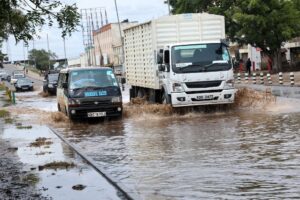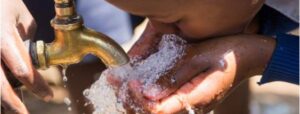VICE-President Dr Philip Mpango has urged Tanzanians to conserve the environment and protect the nature to ensure availability and reliable water services.
Dr Mpango made the call when he addressed residents of Bahi District after laying the foundation stone for the Ibihwa Water Project. The VP also urged the residents of Mpwapwa District to protect forests and plant trees. The VP is on a working visit in Dodoma Region.
While in Bahi District, Dr Mpango asked the Regional Commissioner and District Commissioners to work closely with people to ensure they plant water friendly trees, particularly during the coming rainy season.
The VP asked the Irrigation Commission to collaborate with the Ministry of Livestock and Fisheries to construct water harvesting dams in the region for irrigation, livestock and human needs.
Dr Mpango directed the Ministry of Water to ensure the completion of the remaining 14 per cent of the Ibihwa Water Project by the end of September 2024.
He emphasised the importance of extending the project’s water supply to Bahi town to address the current challenge of consuming salty water.
The VP added that there must be close monitoring of payments to the contractor, saying the money must be released based on the pace of the project implementation.
He said that the Ibihwa Water Project is a realisation of the ruling Chama Cha Mapinduzi (CCM) 2020-2025 election manifesto that aims at guaranteeing availability of clean and safe water. According to the manifesto, 85 per cent of rural residents and 95 per cent of urban residents must access clean and safe water by 2025.
In another development, the Vice-President presented 20 Borani cattle to livestock farmers in Bahi District, donated by the government through the Ministry of Livestock and Fisheries, with the objective of improving livestock farming and the value of livestock products.
Dr Mpango commended the Ministry of Livestock and Fisheries for this initiative, which is expected to increase beef production from the current 80-120 kilogrammes per farmer to 150-200 kilogrammes.
“I urge farmers to embrace modern farming practices to meet national and international market demands for their produces,” said Dr Mpango.
ALSO READ: Why Samia’s clean energy agenda is relief to women, environment
The Minister for Water, Jumaa Aweso, assured the VP that his ministry will diligently oversee the Ibihwa project to ensure its completion by September 30, 2024.
The Ibihwa Water Project worth 709m/-, is expected to address water challenges faced by over 11,000 residents in the area.
In Mpwapwa, Dr Mpango urged the residents to preserve the forest on Wotto Mountain, saying all efforts must be applied to protect the nature for the betterment of the future generation. He ordered the Minister in the Vice-President’s Office (Union and Environment) in collaboration with the Minister for Natural Resources and Tourism to visit the area and make sure they set a strategy to stop the ongoing environmental degradation.
Moreover, the VP ordered the Ministry for Finance to release funds for the construction of a Vocation Training College under the Vocation Education and Training Authority (VETA) in the area.
He said the ministry must give priority to the project since it is designed to benefit a number of residents, especially young people in the area. The project is set to cost 1.68bn/- upon its completion.
On infrastructure, the VP ordered the Ministry of Works through the Tanzania National Roads Agency (TANROADS) to finalise procedures to sign a contract for the construction of the 46.5km Mpwapwa-Kibakwe road at a tarmac level and finalise the feasibility study for the 84km Kibakwe- Chipopolo.
Dr Mpango also ordered TANROADS to ensure the completion of 32km Kongwa-Mpwapwa road.
While in Mpwapwa District, Dr Mpango ordered the Ministry of Water to take water well drilling rig to ensure availability of water to all villages before September 15, this year.
On education, the VP urged parents and guardians to ensure they enrol their children to school, saying the government is currently offering fee free education and thus there is no reason for denying education to the young generation.
“We need educated people to develop this nation, you should therefore register your children to school,” he noted.
Furthermore, Dr Mpango asked Tanzanians to participate fully in the forthcoming local government election in November, this year.
Source: allafrica.com














